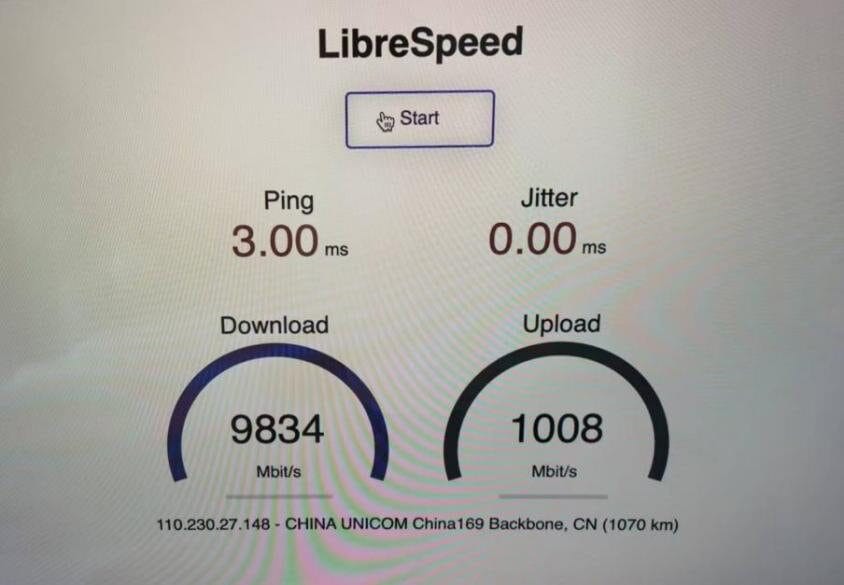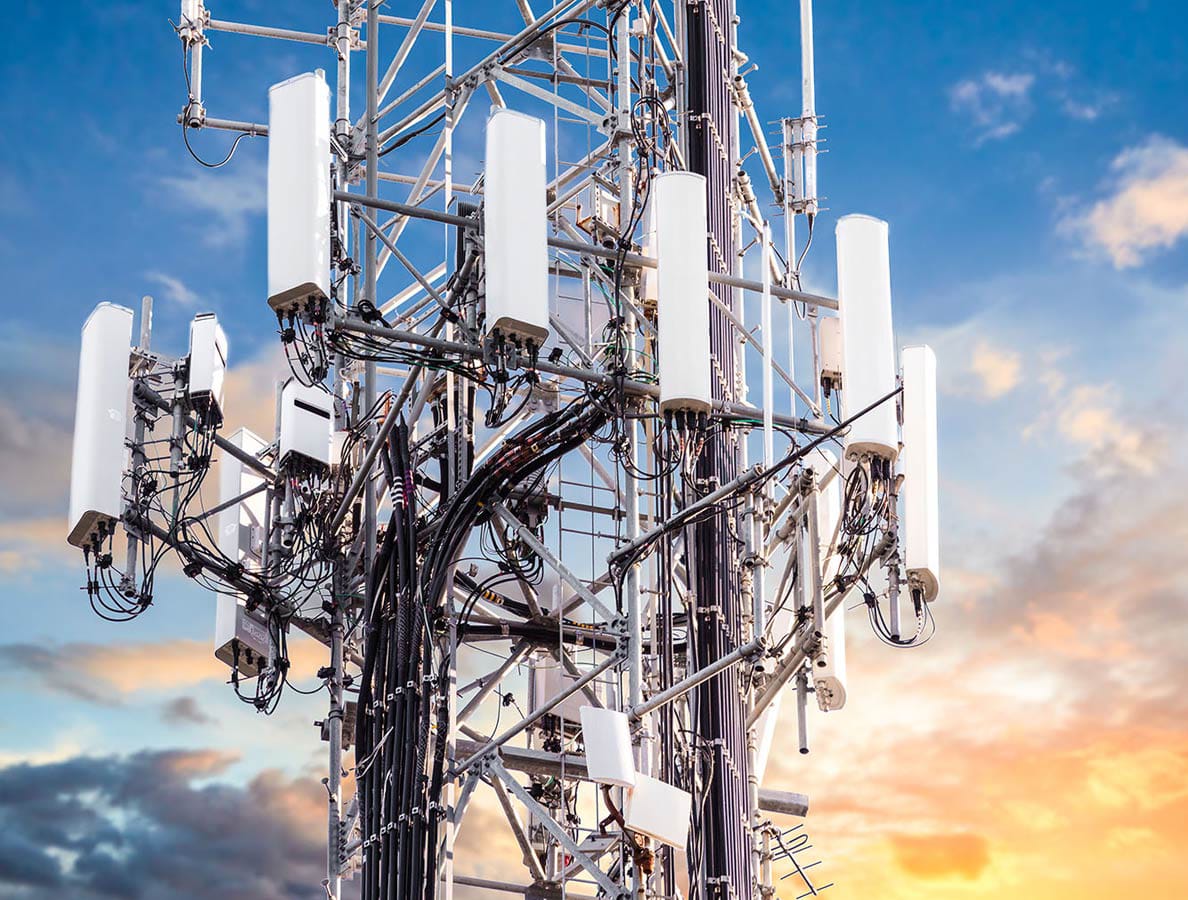In April 2025, publications appeared in the media about the launch of the first 10G network in China. Many Russian Internet users noted that in the Russian Federation, unlike China, it is not available everywhere even a 5G network. We checked what kind of innovation actually appeared in China.
April 20, 2025 many Russian Media reported, which was launched in China first in the world the 10G network, which was supposedly an improvement on the 5G network that appeared in 2019. For example, RBC noted in its article that, in addition to the implementation of 10G, China also leads in the number of operating 5G base stations. Telegraph.news wrote: “While 5G communications are just being developed around the world, successful tests of the 10G network were announced in China,” and “Rosbalt» clarified that the download speed on the 10G network reaches 9834 Mbit/s, which is tens of times faster than standard 5G. Users of the portal "Zen“We also drew attention to the new high-speed Internet in China, which is 10 times faster than 5G. Some English news sites also wrote about the new Chinese network: “It seems like just yesterday that companies were touting the enormous speeds of 5G, and now China has taken the industry even further by launching the first 10G broadband network in its futuristic metropolis.”
April 20 on a Chinese news portal MyDrivers There was news that the Chinese company Huawei and Internet provider China Unicom launched the world's first 10G network in the Xiong'an region - the Chinese equivalent of Silicon Valley. The download speed during the first tests was 9834 Mbit/s, and the upload speed was 6311 Mbit/s. For comparison: this speed is approximately 113 times higher than the average speed of broadband Internet access in Russia, component about 87 Mbit/s. After the release of this news, many readers remembered hype around 5G mobile communications, which appeared in some countries in 2019, and wondered The question is, where did the following 6G, 7G, 8G and 9G networks go?

The fact is that the letter G in the context of the mobile communication standard denotes a generation of technology (from the English generation). Evolution 1G to 5G began in 1979, when Tokyo residents first had access to mobile communications. And 40 years later, in 2019, South Koreans have already begun to use the most modern generation of wireless communications to date - 5G. Under ideal conditions, which depend on location, network provider and the capabilities of the receiving device, 5G can deliver speeds of up to 20 Gbps. In Russia, the deployment of 5G networks in large cities planned for 2026.
But in the Chinese project that made the news, the letter G stands for data speed (in this case 10 Gbps), not generation. Was in China launched not cutting-edge wireless communications, but a broadband wired network that can transfer files at speeds of up to 10 Gbps. It is worth noting that in the original article of the portal MyDrivers it was not written in Chinese that such a network was the first in the world, as many Russian-language sources later claimed. It only talks about the successful launch of the first 10G broadband network in the Xiong'an New Area - an innovative smart city, the construction of which planned to be completed in 2035.
However, China is not the only country that has achieved such data transfer speeds. In some countries, operators have been offering subscribers Internet services at a speed of 10 Gbit/s for several years using advanced fiber-optic infrastructure. For example, Japan is considered a world leader in high-speed internet, and as recently as 2020, Japanese telecommunications service providers offered to its customers symmetrical fiber optic connections of 10 Gbps (this is the speed of downloading and uploading data) for about $55 per month. In South Korea, Internet with similar speeds has become available users of the Internet provider KT in 2018. Iceland boasts one of the best levels of internet coverage - over 93% of homes nationwide connected to full-fiber networks with speeds of at least 1 Gbps, with most of these users having access to 10 Gbps speeds.
Record Wired Internet speeds were achieved by researchers at the National Institute of Information and Communications Technology of Japan, who in March 2024 achieved a data transfer speed of 402 Tbit (402,000 Gbit) per second using 50 km of conventional commercially available optical fiber. And using special optical fiber, researchers from the same Japanese institute dispersed Internet up to 22.9 petabits (22,900,000 Gbits) per second. However, so far achieving such speeds is only possible in laboratory conditions. Widespread adoption of these technologies will require replacing all existing infrastructure.

As for the 5G wireless network that China's new 10G network has been compared to, this mobile internet standard can also reach 10 Gbps in ideal conditions, although real-world results are typically between 100 and 400 Mbps in urban areas. But the next generation 6G, which is expected by 2030, will be able to reach speeds of 1000 Gbit/s. Highest speed so far succeeded engineers at University College London will receive 938 Gbit/s in 2024.
Thus, the Chinese 10G (10 Gbps) network is not related to 5G (fifth generation) mobile communications. In addition, the 10G infrastructure implemented by Chinese companies is not the first network in the world with such high data transfer rates. In a number of countries, home Internet users have had access to similar speeds for several years. Most likely, the launch of this network in the Xiong'an New Area made headlines due to the special status of this smart city, and not the record speed of this wired network.
Cover photo: Pixabay
Read on topic:
- “T—J.” I see the news that 10G communications have been launched in China: how it really is
- Forbes. The die is cast: why the chosen range for the development of 5G networks is not a guarantee of success
- Is it true that 3 million smart toothbrushes carried out a DDoS attack on the website of a Swiss company?
- Is it true that Amazon's checkout-less smart stores employed a thousand Indians instead of artificial intelligence?
If you find a spelling or grammatical error, please let us know by highlighting the error text and clicking Ctrl+Enter.






